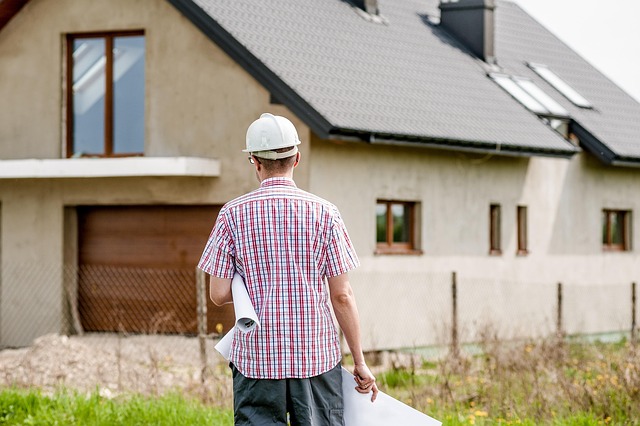Electrical wiring mistakes in DIY renovations are significant risks. Common oversights include incorrect wire types, neglecting grounding, not adhering to local building codes, and outdated regulations. These issues pose safety hazards, reduce property value, and can lead to costly repairs. To avoid these pitfalls, homeowners should stay informed about current electrical standards, consult professionals, prioritize proper grounding, assess electrical capacity, and adhere to local regulations for safe and valuable home improvements.
“Uncovering the Hidden Costs of DIY: Common Renovation Oversights That Can Damage Your Home’s Value”
When taking on home improvement projects, well-intentioned DIY enthusiasts may fall victim to costly mistakes. From electrical wiring blunders that can pose safety hazards to structural integrity neglect, resulting in weakened foundations, every misstep impacts your home’s value. This article delves into the top common renovation oversights—electrical, structural, plumbing, and finishing—that could not only void warranties but also reduce the resale appeal of your dream home.
Electrical Wiring Mistakes:
Electrical wiring mistakes are among the most significant DIY errors that can damage your home’s value. Improper installations or modifications to an existing electrical system can pose serious safety risks and lead to costly repairs. Common renovation oversights in this area include using incorrect wire types, neglecting grounding, and failing to follow local building codes. These oversights not only impact the functionality of lighting and appliances but also affect the overall resale value of the property.
Homeowners often attempt do-it-yourself electrical projects without the necessary expertise, leading to subpar work that can result in short circuits, fire hazards, or even electrical shocks. To avoid these pitfalls, it’s crucial to understand local regulations and consult with a licensed electrician when tackling significant electrical upgrades or repairs. Prioritizing safety and seeking professional guidance ensures that your home remains a safe living space while maintaining its value on the market.
– Overlooking outdated wiring regulations
Outdated wiring regulations are a common renovation oversight that can significantly impact your home’s value. As homes age, their electrical systems may become obsolete, posing safety risks and reducing overall attractiveness to potential buyers. What might have been adequate decades ago is now considered inadequate by modern standards, with stricter codes designed to enhance safety and efficiency. Neglecting these updated regulations during renovations can lead to costly repairs, power outages, or even fire hazards.
Many DIY enthusiasts get caught up in the excitement of transforming their spaces, overlooking the importance of adhering to current electrical standards. This can result in outdated wiring that doesn’t meet modern demands, such as handling increased energy usage from new appliances or smart home devices. To avoid this pitfall, it’s crucial to stay informed about local building codes and consult with professionals who understand the latest wiring practices, ensuring your home remains safe, up-to-date, and appealing in the eyes of prospective buyers.
– Improper grounding and bonding
When tackling DIY projects around your home, one of the most overlooked yet critical aspects is proper grounding and bonding, especially for electrical installations. This common renovation oversight can lead to serious safety hazards and even damage your property’s value. Improper grounding can cause electrical shocks, fire risks, and even short circuits, all of which are potential nightmares waiting to happen, especially in older homes.
A simple yet effective solution is to ensure that all metallic components in your home’s wiring system are bonded and grounded correctly. This involves connecting metal parts like pipes, fixtures, and framing to the earth through grounding wires, providing a safe path for electrical currents. Regular inspections and updates to your home’s electrical systems by professionals can help prevent these common renovation errors, ensuring the safety of your family and maintaining the integrity of your home’s value.
– Inadequate electrical capacity for added amenities
When tackling DIY projects to enhance your home, one of the most overlooked yet significant considerations is electrical capacity. Many homeowners make the mistake of assuming their existing wiring can handle additional amenities like smart home devices, high-power appliances, or extensive lighting upgrades. However, inadequate electrical capacity can lead to overloading, potential fires, and even damage to valuable fixtures. This common renovation oversight often arises from not assessing the property’s current electrical system and its ability to support new installations.
As you plan your renovation, ensure that your home’s electrical infrastructure is up to the task. This might involve consulting an electrician to evaluate and possibly upgrade your wiring to accommodate increased power demands. Taking this proactive step will prevent costly repairs or even more severe issues down the line, ensuring a seamless and safe renovation experience.
When embarking on home renovations, it’s easy to get caught up in the excitement, leading to common DIY errors. Overlooking outdated wiring regulations, improper grounding, and inadequate electrical capacity can significantly impact your home’s value. As you navigate these projects, stay informed about current building standards and consult professionals when necessary to avoid costly mistakes that could mar the tapestry of your dream home. Remember, attention to detail in areas like electrical work is crucial for ensuring both safety and long-term property value.
